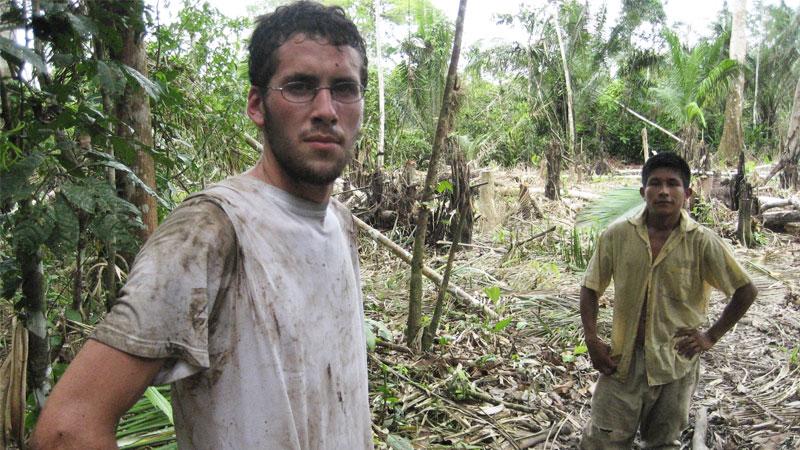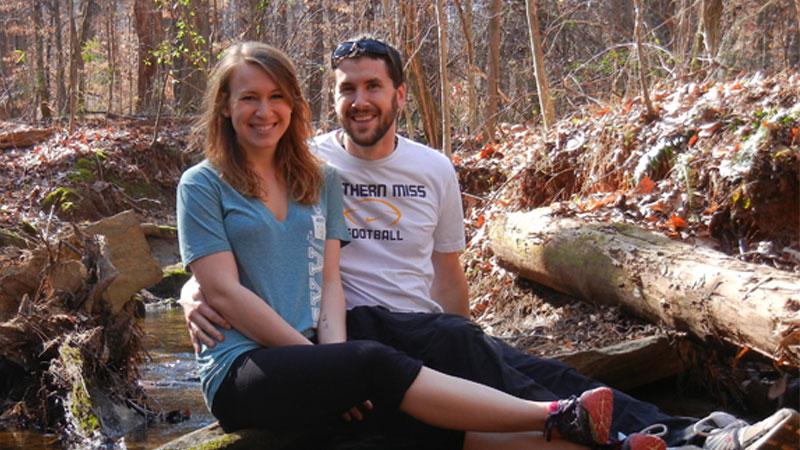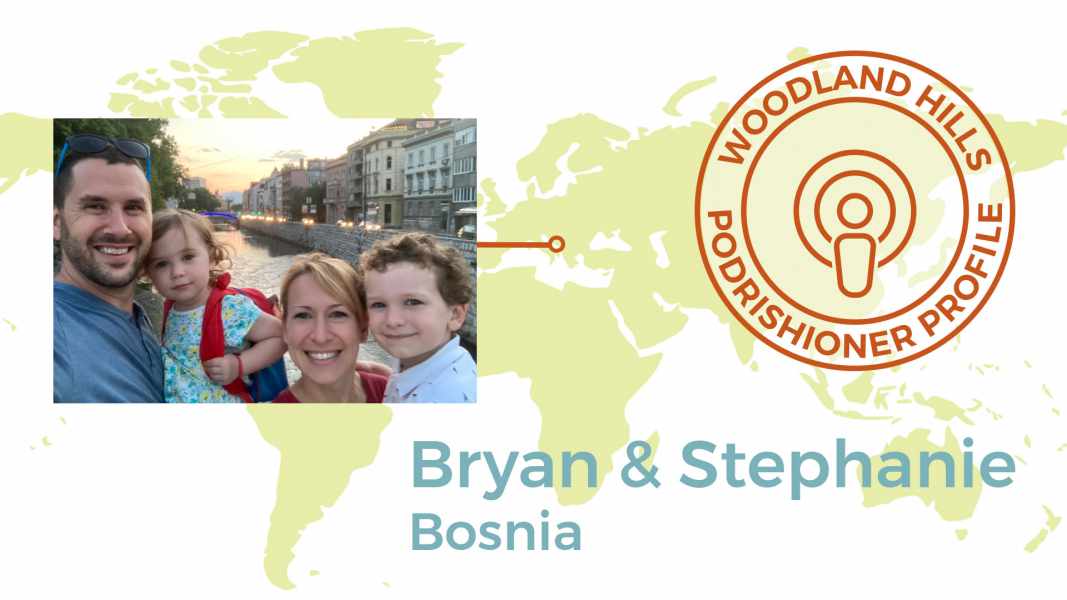By Paige K Slighter
“That started a three to four-year period of deconstruction, doubt, ambivalence about theology, and questioning. At the beginning, a lot of my questions were about God’s character and way of interacting with the world: Was God in control? What might that mean? What about free will?” – Bryan Carey
Bryan and his wife Stephanie are peace activists partnering with an organization in Bosnia to bring healing and holistic reconciliation to broken communities. But the path that led them there has been a winding, challenging one.
Bryan had his first experience overseas in 2006, when he spent a summer in Peru. Later, in 2007, he was invited back for a year and a half by local pastors to do some discipleship in a few villages in the Amazon. Among many skills, the locals taught him and two other Americans how to hunt and fish for their own food and build their own huts. In turn, the Americans shared Bible and discipleship lessons with practical application. Bryan said, “It was very much a mutual learning experience!”

Bryan in the jungle building a hut with his friend Richard.
He almost missed out on the opportunity to go back to Peru because of the tragic shooting at his college, Virginia Tech in 2007. Bryan was not on campus at the time but flew back the very next day because cell phone lines were down, and he didn’t know who had lived or died. He says, “The shooting occurred in the Civil Engineering building, and I was studying civil engineering, so I knew a lot of folks there.” He remembers trying to encourage a friend after the incident. He said something along the lines of, “Well, God is in control and he’ll use this for the best.” His friend turned to him and said, “God didn’t want this! Thirteen of my friends are dead!” That moment, paired with his experiences later in Peru, propelled Bryan into a period of re-examining his faith.
Bryan says, “From 2007-2010, any sort of theological beliefs I had really came apart. It wasn’t just ‘faith’ in the American Church, or the Church more generally. My system of beliefs, as Greg and others put it, was a house of cards, and it had largely come apart. I didn’t even care about rebuilding it.” His disenchantment with the American Church grew after he returned from Peru.
Part of what he was experiencing was culture shock, which the Oxford dictionary defines as “the feeling of disorientation experienced by someone who is suddenly subjected to an unfamiliar culture, way of life, or set of attitudes.” Bryan says, “For many who leave the US and experience a different pace of life, returning can be challenging because priorities seem to be different—they seem disconnected from a sense of place, history, family, relationships, etc. There are a lot of symptoms of culture shock, but I think overall it’s about feeling disconnected, confused and angry.”
There were many layers to this process as Bryan compared his mission experiences to life back at home in the U.S. The first thing that troubled him was what he called the “misplaced priorities, both theologically and practically of the American church”—primarily as it relates to wealth. “At a very visceral level, this wealth was incredibly off-putting after returning from a year in the Amazon jungle and a year and a half total in South America, where we lived very close to the land, with very little practical comforts. In the American Church on the other hand, there was such affluence and complete disconnection from the majority of the world, that the priorities seemed fundamentally wrong.” There were other discrepancies he saw that he thought “betrayed the very values and character of Jesus and God’s reign.”
Bryan finally found some answers when he read Greg’s book The Myth of a Christian Nation, a reflection on how political power is destroying the church. He resonated deeply with what Greg wrote. Soon after, he listened to the Faith & Doubt sermon series devoted to grappling with life’s deep questions. He says, “That series gave me permission to actually engage with all the questions I was wrestling with, rather than to feel as if my faith was weak or falling apart.” He realized that he had never lost his commitment to Jesus. He was just on a journey to reconstructing his belief system.
Bryan continued rebuilding his faith as he finished an engineering internship in Houston, where he met his wife. Together they participated in ministries like Church Under the Bridge, devoted to working with the poor and marginalized. They learned a lot about working across socio-economic lines and how the collaboration could be “mutually transformational.” They also traveled to Africa to do some engineering and aid work before Bryan proposed. That’s when they headed to Candler School of Theology in Atlanta to get their Master of Divinity degrees. While in attendance, their peace work came into sharper focus, and as their understanding of vocation highlighted restoring shalom, they began looking into peace building organizations. After graduating, they decided to move to Bosnia and work with Peace Catalyst International, an organization dedicated to global peacemaking.

Bryan & Stephanie during their Candler days.
So, what exactly does peacemaking in Bosnia look like? Pre-worldwide pandemic, Bryan and Stephanie were organizing ten-day trips for local Bosnians and visiting Americans to create uncommon friendships, as well as learn about peacemaking. One Presbyterian Church leader who participated said, “This type of collaborative trip is the way of the future. We must all learn to live out the Gospel this way everywhere.”

A group from the most recent pre-COVID peacemaking trip.
COVID is changing a lot for them. There are still some local programs going on, but most of what they do is limited to online. Though traveling isn’t really an option, they’ve found a way to transition their peacemaking conferences and experiences online for the Fall.
We are so grateful to hear Bryan & Stephanie’s story and happy we can provide resources for them as they continue God’s Kingdom work. If you’re interested in hearing more about what they’re up to, check out their blog.
Bryan’s Tips for Everyday Peacemakers
Living out shalom as a lifestyle
- Recognize that God’s mission is the restoration of holistic shalom, so that means our vocation as Jesus-followers is peace building. This is for all of us as followers of Jesus.
- Reframe conflict as an opportunity. If there’s conflict, it’s because there’s some unmet needs or a broken relationship at the root. Conflict shows us where attention is needed for God to show up as a healer.
- Learn to move toward conflict as a healer.
-
- Be present with those that are different or “other” as a learner. Show up to be present with them and join in work that they’re already doing that you can support.
- See goodness on the other side (or at least see the complexities of others’ stories).
- Show self-reflection and even self-criticism openly with those on the other side of a social division. (This builds trust, so they know that you’re open to growth as well.)



